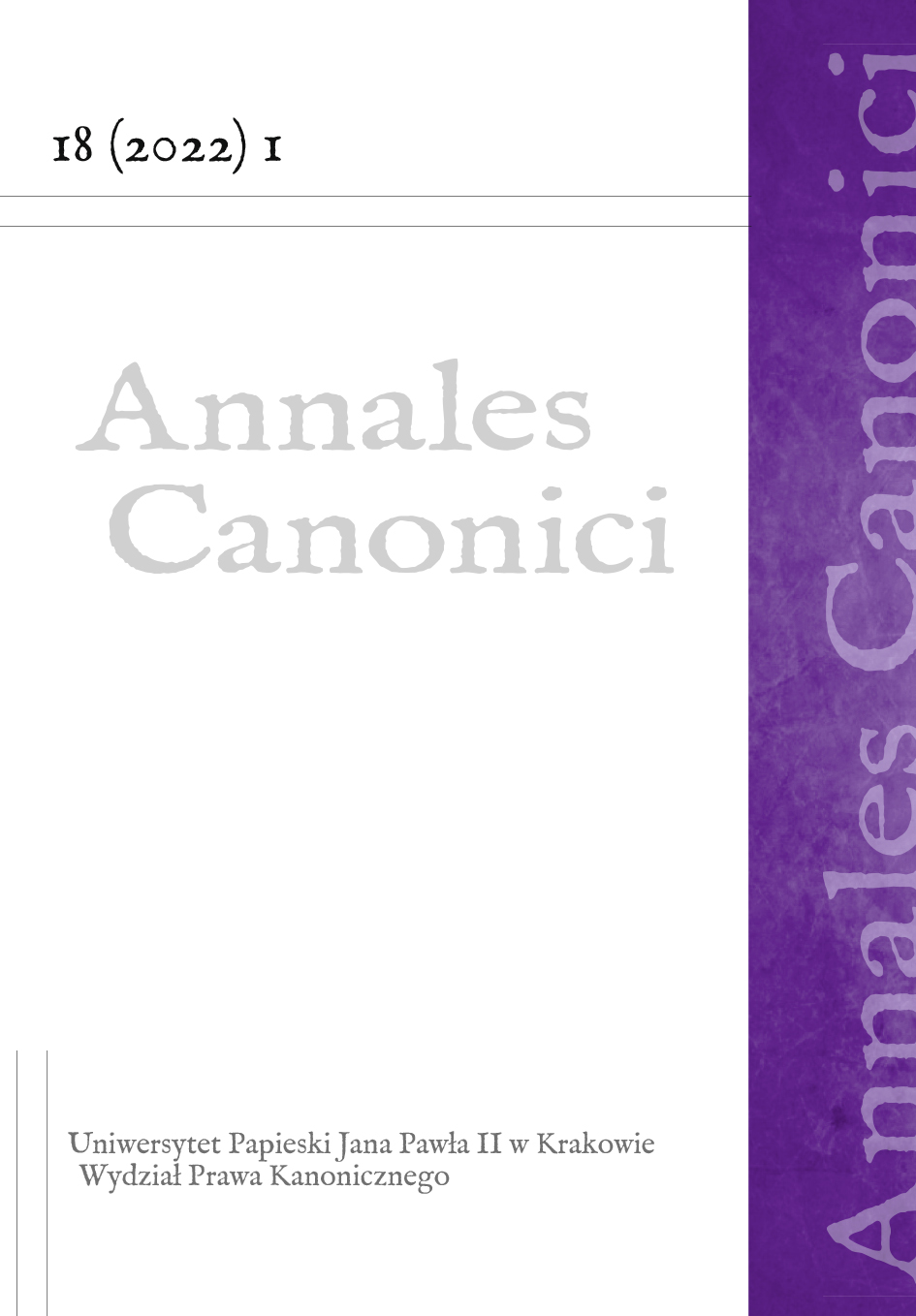Motives for bringing proceedings for declaring marriage null
DOI:
https://doi.org/10.15633/ac.18104Keywords:
annulment of marriage, condition of marriages, failed marriageAbstract
The study of the condition of marriages and reasons for failed marriages by analyzing the motives for bringing annulment actions is a novelty in the literature. The paper presents the results of such research conducted by the authors. These motives are significantly dependent on the gender of the respondents, which was shown.
References
Bańka W., Zarządzanie personelem, Toruń 2000.
Berny J., Leśmiewski M.A., Górski P., Motywacja w systemie zarządzania zasobami ludzkimi. Analiza teoretyczna problemu, „Zeszyty Naukowe Uniwersytetu Przyrod-niczo-Humanistycznego w Siedlcach. Administracja i Zarządzanie” 92 (2012), s. 77–89.
Boguszewski R., Stosunek Polaków do rozwodów, „Komunikat z Badań CBOS” (2019) nr 7, https://www.cbos.pl/SPISKOM.POL/2019/K_007_19.PDF.
Codex Iuris Canonici auctoritate Ioannis Pauli PP. II promulgatus, 25.01.1983, „Acta Apostolicae Sedis” 75 (1983) pars 2, s. 1–301; tekst łacińsko-polski: Kodeks prawa kanonicznego, przekład zatwierdzony przez Konferencję Episkopatu Polski, Poznań 1984.
Karsten K., Kroczek P., Uzależnienia jako przyczyny nieważności małżeństwa w prawie kanonicznym. Obraz na podstawie akt sądowych, „Studia nad Rodziną” 22 (2018) nr 4 (49), s. 137–153.
Kroczek P., Kilka uwag kanoniczno-duszpasterskich odnośnie orzeczenia nieważności małżeństwa, „Bielsko-Żywieckie Studia Teologiczne” 8 (2012), s. 169–180.
Miler-Zawodnik A., Teorie potrzeb jako współczesne teorie motywacji, „Obron-ność. Zeszyty Naukowe Wydziału Zarządzania i Dowodzenia Akademii Obrony Na-rodowej” 4 (2012), s. 101–116.
Pagotto C., Vasa R. F., Schneider A., Opcja preferencyjna na rzecz rodziny. 100 pytań i odpowiedzi wokół Synodu poświęconego rodzinie, Rome 2015.
Sekuła Z., Motywowanie do pracy. Teorie i instrumenty, Warszawa 2008.
Sikora J., Motywowanie pracowników, Bydgoszcz 2000.
Stevenson N., Motywowanie pracowników, Warszawa 2002
Ustawa z dnia 25 lutego 1964 r. – Kodeks rodzinny i opiekuńczy (Dz.U. z 2020 r. poz. 1359).
Downloads
Published
Issue
Section
License

This work is licensed under a Creative Commons Attribution 4.0 International License.
The author declares that he owns the copyright to the work (article) and that it is not limited in the scope covered by the above declaration and that the work (article) is an original work and does not infringe the copyright of other persons.
The author allows the Pontifical University of John Paul II in Krakow to use the paper free of charge, non-exclusive and unlimited in time by, i.e.:
– keeping in records and reproduction of the copies of the work using printing, reprography, magnetic recording and digital technology;
– trade in the original or copies on which the work has been recorded (introduction to the market, lending or rental of the original or copies, public exhibition, display, as well as making the work available to the public in such a way that everyone can have access to it in a place and at a time chosen by them);
– inclusion of the work in a collective work;
– granting by the Pontifical University of John Paul II in Krakow a Creative Commons Sub-licence Authorship Recognition-Non-commercial Use-No Subsidiaries 3.0 Poland
The Pontifical University of John Paul II in Krakow makes the work available on the Magazine Platform of the university under the Creative Commons Attribution-Non-commercial Use-No Subsidiary Works 3.0 Poland license.
Thus, it entitles all interested parties to use the work under the following conditions:
- the author and the title of the work will be given,
- the place of publication (journal title and internet address of the originally published work) will be indicated,
- the work will be distributed in a non-commercial manner,
- no dependent works will be created.

